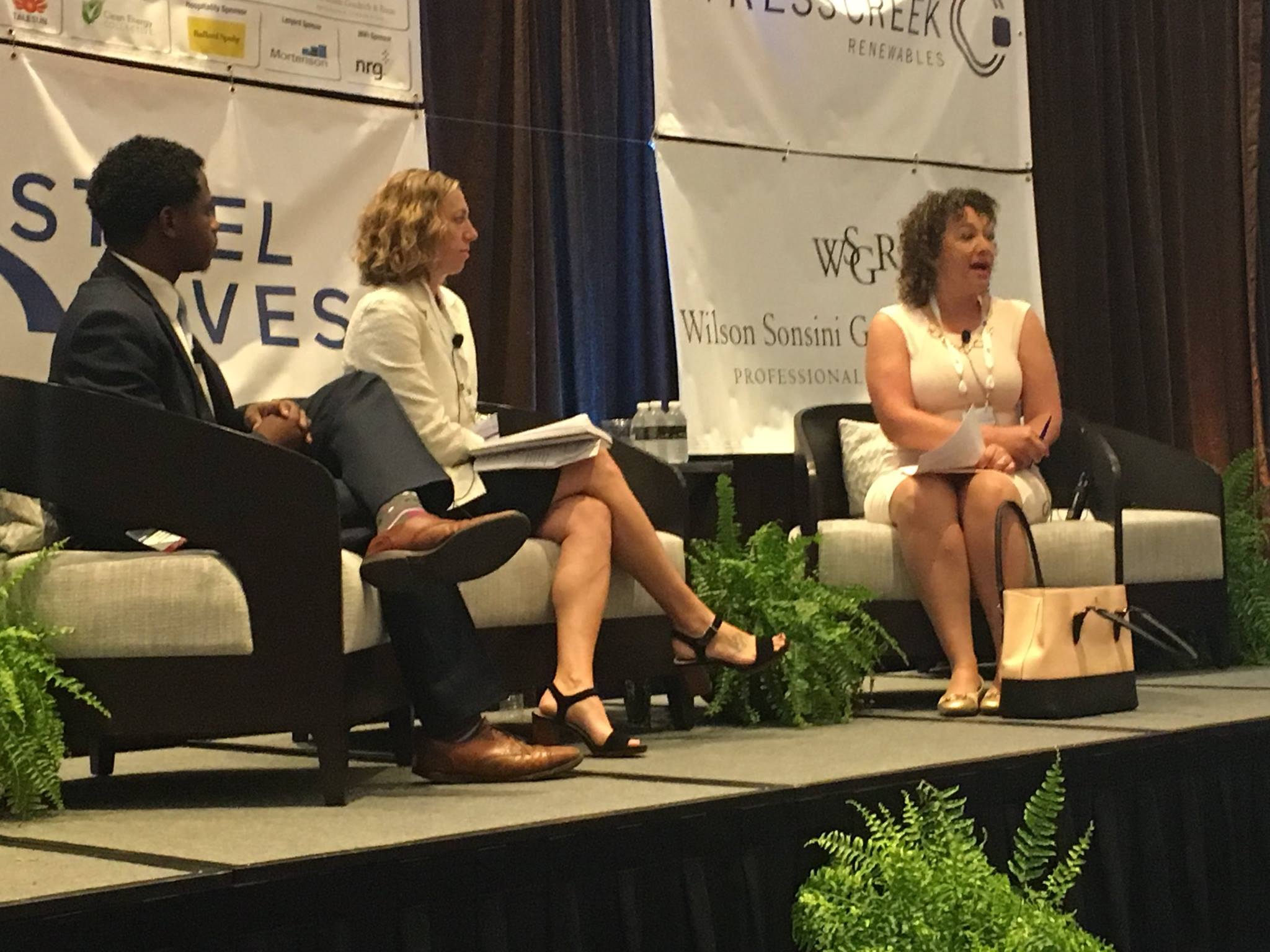Groundswell recently participated in the first annual Community Solar Summit, held by the Coalition for Community Solar Access in Colorado, the state with the most advanced community solar portfolio. We took part in a panel discussion called "Living Up to the Promise of Access and Equity in Solar for All," a fireside-style conversation about ways community solar developers, advocates, and other stakeholders can ensure that equity and the prioritization of reaching into working communities as viable markets for community solar remains an integral and permanent factor in community solar development.
As one of only a handful of nonprofit developers at the summit, Groundswell share our perspective on how developers and subscriber organizations can be more inclusive of working communities and communities of color. It’s an important issue because the sustainability movement has not yet recognized the various paths different communities take to get to the same table. Indeed, there’s sometimes even a sense of indignation when the threat of climate change isn’t enough on its own to bring more people to the clean energy table. That same frustration was palpable at the CCSA summit, but there was also a collective urgency to addressing the hurdles.
For example, working communities have specific interests and priorities that are unique to their economic situation. Many of the choices they make from a consumer perspective are highlighted by urgency and necessity. Families that struggle to make ends meet are less likely, for example, to casually subscribe to multiple $7-10 streaming services if they’re trying to make a fixed income stretch over a significant period. The very real prospect of needing every penny during that time makes purchases that aren’t specifically addressing their immediate economic concerns superfluous. That means the same messages that many in our field have grown comfortable using to effectively convert individuals and businesses to clean energy may need to be revisited when speaking with communities with different priorities.

During our fireside chat discussion, Groundswell stressed that if the clean energy industry truly wants to serve working communities, it must take the time to get to know and understand them. Sometimes that understanding can exist organically, when an organization’s staff, volunteers, and board leadership bring a built-in institutional perspective about the communities they seek to serve. Directly representing the diversity of communities an organization seeks to serve on its staff and board creates an informed understanding based on real experiences living and working in those communities. However, not every organization has the benefit of a wealth of diverse backgrounds in-house. In those cases, by partnering with trusted community institutions such as churches and other faith centers, developers can find a gateway into the community they wish to serve and a window into the values of that community.
Our key takeaway from our participation at the first CCSA summit was that there was a genuine appetite for a national conversation about how to continue to prioritize equity as solar—and community solar, specifically—becomes a more broadly available. The desire among community solar developers to serve working communities is real, and it will be exciting to see engagement transformed into action.
